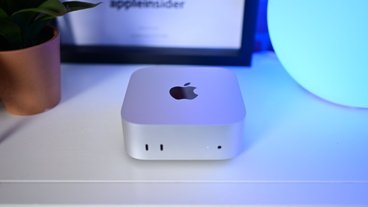A report by the New York Times explained that the investigation centers on the Section 8 provision of The Clayton Antitrust Act of 1914, which forbids "interlocking directorates," a situation where directors serve on the boards of two competing companies.
Eric Schmidt, the chief executive of Google, and Arthur Levinson, the former chief executive of Genentech, serve on the boards of both Apple and Google. If the FTC were to take action in the matter, the largest consequence would call for the two members to resign from their duties as directors for one of the two companies. Antitrust experts cited by Times stated that "investigations of interlocking directorates rarely lead to major confrontations between companies and the government."
The article cited Andrew I. Gavil, an antitrust expert and a professor at the Howard University School of Law, who said, "Government actions under Section 8 are rare, but they are brought under circumstances when the presence of a common director on competing boards is likely to be anticompetitive.â€
Apple and Google both collaborate and compete, although their competing products are rarely aimed at the same customers. Both companies produce web browsers and smartphone software, but in both cases Google aims its offerings at competing against the encroachment of Microsoft into its advertising business, with the Google Chrome browser positioned to replace Internet Explorer and the Android phone platform targeted directly at Microsoft's Windows Mobile efforts.
Google also largely finances the development of Mozilla Foundation's Firefox browser, but neither Firefox nor Chrome are direct competitors to Apple's Safari browser, and describing the web browsers as a competitive market is a difficult stretch because all of the produts are offered for free.
Similarly, while pundits have bent backwards to position the Android G1 as an iPhone killer, it has done nothing to impact iPhone sales and appears to be aimed at a very different hobbyist audience compared to Apple's consumer-centric iPhone. Even so, Google's Schmidt regularly recuses himself from Apple's board meetings when the company discusses the strategy related to the iPhone.
Other areas where Apple and Google compete include photo editing software, with Apple's iPhoto recently being joined by Google's Picassa on the Mac platform. There is also some overlap between Google's YouTube service and Apple's iTunes Store, and the two companies sell competing cloud services, with Google offering online disk storage, calendar, and email services that compare with Apple's MobileMe services.
Google also has plans to push Android into netbooks and other mobile devices where it could serve as competition for Apple's iPod touch and the forthcoming tablet devices the company is believed to have in its product pipeline, as well as lower cost notebook Macs. Were the Android market to develop significantly, it would also begin to compete against Apple's Cocoa Touch platform for mobile software development and its iPhone App Store for mobile software sales.
The Times reported that the recently confirmed head of the US Justice Department's antitrust division, Christine A. Varney, last year singled Google out as a potential antitrust concern because of the company's powerful lock on Internet search and advertising.
However, Apple has shown no interest in entering the search or advertising markets, shunning ad-supported services shortly after a brief experiment with advertising within the now discontinued Sherlock, an Internet channel search technology Apple abandoned earlier in the decade to focus on local desktop search under the name Spotlight.
Government efforts to impede Google's search business might likely result in handing rival Microsoft a leg up in the market it has been unable to enter successfully on its own. Such a move would be bitterly ironic after the timid efforts to investigate Microsoft's antitrust violations in the 1990's, including the company's violation of its consent decree, were completely dismissed under the then new Bush Administration nearly a decade ago.
After it became clear that the government would not act to redress Microsoft's illegal business practices, Apple, Google, and other companies began working together to develop a competitive front to rival the Windows juggernaut. Apple successfully ran circles around Windows development on the desktop and obliterated Microsoft's efforts to compete with Windows Media and in consumer media players with the iPod, iTunes and QuickTime, while Google funded the development of Firefox as an alternative to Internet Explorer and gave Microsoft no easy entry into its search and advertising business; both companies have also executed plans to devastate Windows Mobile in the smartphone arena.
Apple and Google have vested interests in continuing to cooperate against Microsoft whether or not the FTC forces changes to their boards memberships. Apple relies on Google to provide a variety of information services on the Mac, Apple TV, and iPhone, including maps, search, and expanding efforts in YouTube integration.
Google links to Apple's QuickTime movie trailers in its search results, and modified its YouTube service to use H.264 entirely to support Apple's products. Apple is also incorporating expanded support for Google Calendar, YouTube and other services in Mac OS X Snow Leopard.
Even in areas where the two companies offer competing products, there are many collaborations in using open technologies; both use the open WebKit engine to power their web browsers and the open XMPP/Jabber technology in their instant messaging products, for example.
 Prince McLean
Prince McLean






-m.jpg)






 Wesley Hilliard
Wesley Hilliard
 Malcolm Owen
Malcolm Owen
 Andrew Orr
Andrew Orr
 William Gallagher
William Gallagher
 Sponsored Content
Sponsored Content
 Christine McKee
Christine McKee

 Thomas Sibilly
Thomas Sibilly







65 Comments
Sounds like someone put the FTC up to this? I imagine Apple has extensive notes to document when Schmidt steps out during Apple board meetings. Although there are areas they might overlap and compete (Android, mainly?), I can imagine that Apple and Google want to maintain their relationship, so others may want to cause a rift.
Sounds like someone put the FTC up to this? I imagine Apple has extensive notes to document when Schmidt steps out during Apple board meetings. Although there are areas they might overlap and compete (Android, mainly?), I can imagine that Apple and Google want to maintain their relationship, so others may want to cause a rift.
It does sound like that, but I think this investigation will be healthy for the two companies especially since Apple and Google will be having even more integration this summer with the 3rd generation iPhone which will reportedly have simple uploading of videos to YouTube built in. By healthy, I figure nothing criminal will come out of this investigation and at most someone will have to step down from the board.
Then, please investigate AT&T and Apple.
I want to see the government break down that exclusivity.
Just like what they did with Microsoft, prohibiting OEM to build and offer configure solution with other OS rather than Windows.
I believe by opening Apple's iPhone would force AT&T to actually improve the sucking and expensive service by actual improve "real coverage" and "no drop calls" than "more bar in more places" when their "more bars" doesn't actually mean "better coverage" and/or "no drop calls"...
And by opening, AT&T would actually lower their rate...
Ah, the two companies should just merge already and get it over with.
They should investigate M$ft cause everytime i try to use Live Search it only shows me results from Microsoft and it's Partners and never gives me what am really looking for. I agree that they got to make money but damn live search has become useless.